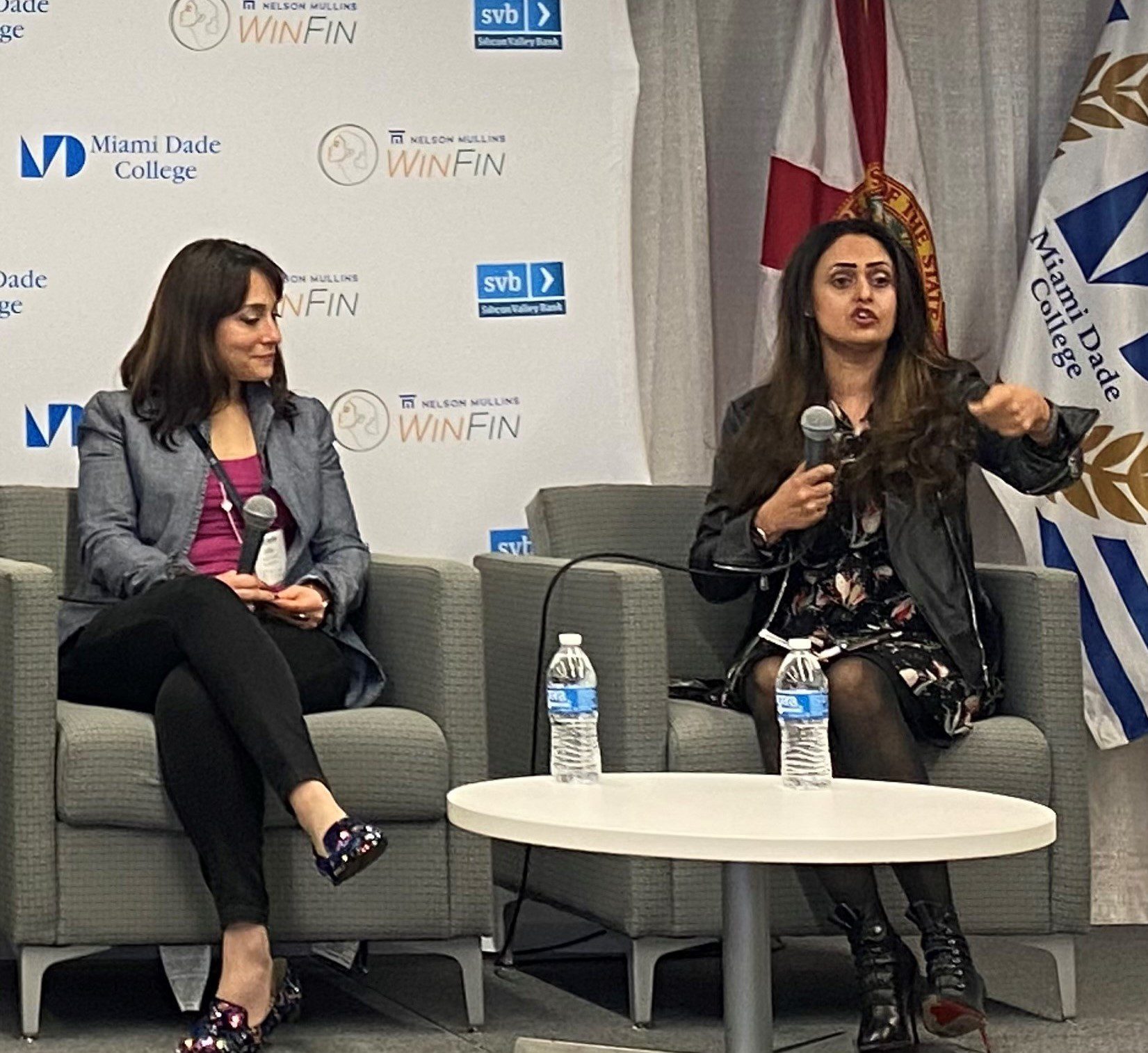If blockchain, crypto-currency and other new financial technologies are to develop into a multi-trillion-dollar global industry, they need adequate regulation, and today’s fintech leaders must collaborate more with governments and other institutions to help craft appropriate rules, policies and laws.
That was among recommendations from a day-long Women in FinTech (WinFin) Conference, organized by Nelson Mullins law firm and held Thursday at Miami Dade College’s Idea Center. Panelists say too often fintech entrepreneurs are so busy building companies, they don’t give governments or other authorities enough input to help develop proper regulations.
“As much input as we can provide into the [regulatory] process, I think it’s going to be critical,” said Anastasia Stull, executive director of Nelson Mullin’s compliance and regulatory consulting division based in Washington, D.C. and known as Assureg. Added Nahomi Diaz, a lawyer with fintech Finder in Colorado: “We need to get active when these [proposed] regulations come up to voice our concerns.”
Better regulation is needed both in the US and worldwide, panelists said, to weed out bad actors from fintech markets, to better protect consumers and to boost “clarity” for businesses looking to adopt new financial technologies. Rules now lag behind the pace of innovation in finance, they said.
One group working to educate governments and big corporations on fintech is the nonprofit Global Blockchain Business Council, started in 2017 and now encompassing some 400 institutions, said co-founder and CEO Sandra Ro. The Council set up in Switzerland, because that country has been among the most welcoming worldwide to blockchain-based businesses, offering regulatory guidance and easy access to its regulators, Ro said in her keynote presentation. Indeed, that welcome has helped turn the Swiss town of Zug into “Crypto Valley,” home base for hundreds of crypto companies, says Ro.
The U.S. government recognizes the challenge. Last year, the Federal Reserve System named its first Chief Innovation Officer: Sunayna Tuteja, a former investment banker active in crypto who’d been working in North America and Asia to break down barriers in financial systems. Tuteja said the Fed released a discussion paper in January on the future of money and possible U.S. Central Bank Digital Currency. “The comment period is open to everyone,” she told the conference, urging leaders in academia, law and other fields to provide input to build a stronger fintech eco-system.
Rebecca Lester, a 26-year-old lawyer in finance at Nelson Mullins’ Miami office, says she and colleague Megan Kilissanly came up with the idea for WinFin last year, after recognizing that women – as a minority in fintech – have unique concerns and perspectives to share. For example, how do you deal with repeatedly asking your husband or boyfriend to cook, when you’re working long hours? Cooking is, of course, traditionally women’s work. Or how do you find women mentors in a male-dominated field?
The conference featured some of Miami’s best-known female tech leaders: Melissa Media, president of eMerge Americas, which promotes South Florida as a tech hub, and Michelle Abbs, founder of Web3 Equity, a crypto and Non-Fungible Token (NFT) community empowering women. Also participating were women in finance businesses both new and established, including Begon/a Guzman of Banco Santander’s Private Banking International. Guzman said big banks nowadays, “we have to go digital or go home.”
- Miami-based People Clerk acquired by larger justice-tech venture - April 5, 2024
- Lessons from accelerators: Nala’s Latin American founders share learnings from Endeavor, eMerge and Techstars Silicon Valley - February 28, 2024
- Miami’s Blackdove highlights digital art for all during Miami Art Week - December 4, 2023




